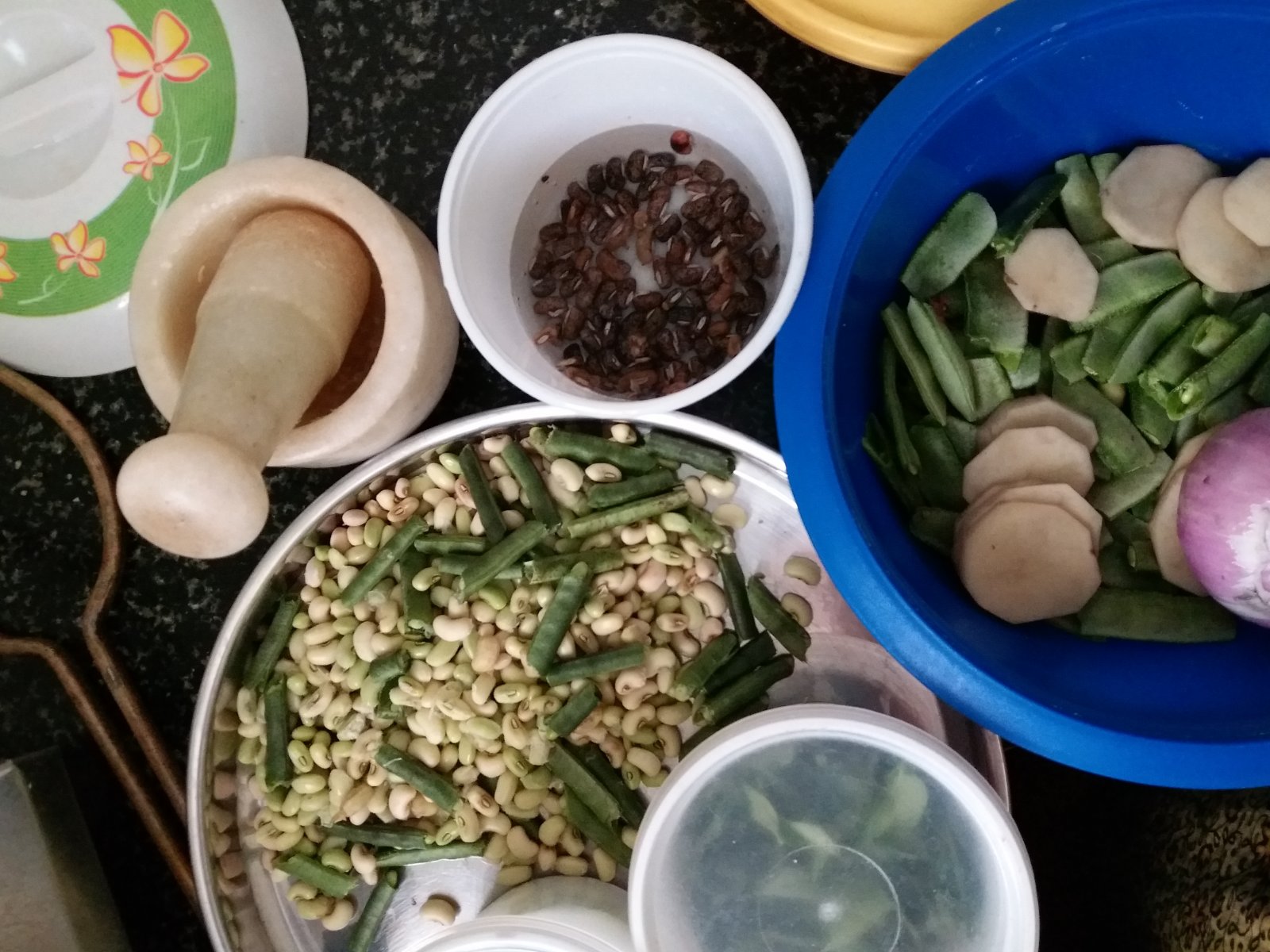Lessons to children learning how to cook
May 27, 2021
Story

Cooking is a life skill just like communication, driving, swimming, writing and singing are. You are not losing anything by learning how to cook well while the benefits are multiple. There are often times and situations in our life when hiring a cook or eating out will not work out and you will have to rely on your culinary skills. Not only eating is an essential activity in our lives, eating good food is one of the major joys too.
I learnt cooking early when I was over ten years old and by the time, I turned fifteen, I was able to cook complete meals. The freedom my mother gave to enter the kitchen, experiment, make mistakes and find out what works for me helped me to master the nuances, enjoy the process and aim for better results each time. Its not about how delicious or fancy your food is but the ability to feed yourself and your family healthy and nutritious food. I am teaching my teenager cooking nowadays for the same reason.
Few tips for children when they decide to enter the world of onions, pots and pans!
- Wash hands with soap before handling food items and cooking.
- Wear cotton clothes while cooking. Avoid frilly, flared dresses, and use of dupattas, stoles etc. Apron recommended.
- Kitchens can prove to be danger zones in homes as most accidents occur either in bathrooms or kitchens so till a time you are an expert avoid multi-tasking, social media, phone calls and text messages while cooking.
- Cooking includes washing vegetables, meat, cutting board, knives, utensils, gas stove, kitchen table and anything and everything used during cooking.
- Cooking includes managing all the vegetable peels, meat discards, wrappers and other kitchen waste systematically into the wet and dry waste bins and being responsible for its timely disposal.
- Cook keeping 3 priorities in mind viz., nutrition/health, budget and your own safety.
- Utensils for cooking, matchbox or gas lighter, spatulas, covering lid of the cooking pot, gloves for shifting the hot pot and kitchen wipes are necessary.
- The basics of cooking is you need salt or sugar, oil and basic spices like turmeric powder, chili powder, garam masala. You will use water, curd, vegetable stock, chicken broth, corn flour dilute, chick peas stock at times when you cook exotic dishes but that comes later. First learn how to make a simple breakfast, lunch and dinner!
- The basics involve heating oil in a wok, frying onions, tomatoes, ginger and garlic mince, chillies and adding spices and salt. This base will do for most of the Indian food we eat on a daily basis. The vegetables may vary but this base works.
- Eggs need whisking after adding salt.
- Pasta and noodles need boiling, draining and washing with cold water before they can be cooked.
- You cannot go wrong with your rice. No matter how well your curry turns out, if your rice is soggy, over cooked and runny, nothing else matters. Wash the rice well. Heat enough water in the pressure cooker and add the rice to it. Check the water level which should be 2 inch and a half above the rice level. Drain the excess water and press to 2 or 3 whisles over medium flame. If you choose a cooker that is not working or doesn't whisle, your rice will burn.
- The smaller you cut the vegetables, the faster they will cook and the tastier they will be.
- Cooking time for meat should not be lesser than 45 minutes to 1 hour for health and safety reasons. A brief on tapeworm and different risks from partially cooked meat should be given to children.
- Cover the lid, lower the flame for slow cooking and to avoid burning the food.
- My favourite menu for children learning cooking
Breakfast: Toast, omelette, tea or fruit juice (water melon, apple smoothie)
Lunch or dinner: Rice, dal and stir- fried vegetables.
- A demonstration on how to handle hot oil and water in a wok is a must. Reminder- a single drop of water can create a hot oil splash or spill which can be dangerous for the cook.
- Don't forget serving the food while its fresh and hot in clean plates and bowls is just as important as the whole exercise of preparing it.
This being said, the burden of cooking should never lie with just one person in the household nor should it be gender centric because in many cultures around the world, women and girls are overburdened by domestic chores and gender roles, sometimes even mismatched with their age and ability to carry them out.
* * * * * *
The author is a print journalist and columnist and recipient of several journalism awards like UNFPA National Laadli Media Awards for Gender Sensitivity, World Pulse Story Awards and Youth Ki Awaaz Awards 2019 held in New Delhi. She is a member of Network of Women in Media India (NWMI) Bangalore Chapter.




